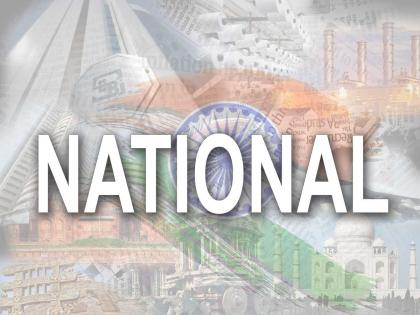Owaisi urges SC to lift veil of unholy nexus between CAA, NRC
By IANS | Published: December 14, 2019 06:38 PM2019-12-14T18:38:04+5:302019-12-14T18:45:05+5:30
The Citizenship Amendment Act (CAA) appeared to have an unholy nexus with the National Register of Citizens (NRC) exercise, said Asaduddin Owaisi, Lok Sabha member from the All India Majlis-e-Ittehadul Muslimeen (AIMIM), in a petition challenging the Act in the Supreme Court.

Owaisi urges SC to lift veil of unholy nexus between CAA, NRC
According to Owaisi, the NRC is aimed at identifying "illegal migrants" residing in India.
Owaisi urged the top court to lift the veil on the CAA-NRC nexus that could become a barrier to the right to life and personal liberty available to every person under Article 21 of the Constitution, and not just to citizens.
"Thus, even an illegal migrant has the right not be deprived of his/her personal liberty except according to procedures established by law," he said in the petition filed through advocate Nizam Pasha.
Attacking the NRC, Owaisi contended that the NRC exercise, which is on in Assam and is sought to be launched in the rest of the country, would result in identification of persons as "illegal migrants".
The CAA seeks to simultaneously offer citizenship to illegal migrants Hindu, Sikh, Buddhist, Jain, Parsi or Christian from the neighbouring three countries taking shelter in India on the presumed ground of persecution.
The petition said after the coming into force of the CAA an illegal migrant, prosecuted under the Passports (Entry into India) Act, 1920 or the Foreigners Order, 1949, would be prosecuted for being an illegal migrant because he/she didn't belong to one of the exempted religions. "Ex facie, such a procedure for taking away a person's liberty will be vitiated by unreasonableness, resulting in a violation of his/her right under Article 21", said the petition.
Owaisi has stated every person present within the territory of India, be they be migrant or citizen, must have the right to self-identify as Muslim without being deprived of their dignity and liberty purely as a consequence of so identifying themselves.
He also questioned why Myanmar had not been included in the list of neighbouring countries.
"It may be noted that Afghanistan never formed a part of India, even during the British rule, whereas Burma (Myanmar) was a part of India even when the Government of India Act, 1935 was enacted. Therefore, there is no basis for selection of the three countries except that all three are Islamic states", he said.
The petitioner urged the apex court to pass appropriate writ, order or direction declaring that Sections 2, 3, 5 and 6 of the CAA 2019 were unconstitutional, null and void and ultra vires of Articles 14, 21 and 25 of the Constitution. More than a dozen petitions have been filed in the Supreme Court challenging the constitutional validity of the Act, including this petition.
( With inputs from IANS )
Open in app